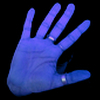Programmer
Automatic Security Testing with Static and Dynamic Analysis
Submitted by bjaspan on Wed, 07/02/2008 - 17:10.Session recording
Overview
Most Drupal security vulnerabilities are discovered via manual code reviews or by accident. This session will introduce two automated approaches to detecting Cross-Site Scripting (XSS) and SQL Injection (SQLi) security vulnerabilities and present progress to date in applying them to Drupal.
Dynamic Analysis, or "data tainting," involves tagging actual data within a running program received from untrusted sources as "tainted," propagating the taintedness to any data derived from tainted data, and detecting when tainted data is used in dangerous circumstances. For example, data tainting would detect when any data derived from unsanitized GET request parameters is outputted within HTML.
Static Analysis involves performing data-flow analysis directly on source code to detect when certain kinds of security vulnerabilities are possible. Like Dynamic Analysis it uses a data tainting model but instead of operating within a live running program on real data it studies all possible code paths within a program to identify potential problems.
Agenda
* Conceptual introduction to Dynamic Analysis and Static Analysis
* Advantages and disadvantages of each approach
* Current progress and results with Drupal
** System-wide data tainting using Taint PHP
** Using the Schema API for accurate database tainting
** Development of Taint Trace for easier debugging
** "Run-time static analysis" of Drupal Input Formats
Goals
Attendees will learn how Static and Dynamic Analysis can work to improve program security by automatically detecting XSS and SQLi vulnerabilities.
Resources
This session requires only basic PHP development skills. All Drupal module developers are qualified and encouraged to attend.
- Login to post comments
- 38 points
Field API and Fields in Core
Submitted by bjaspan on Wed, 07/02/2008 - 16:45.Session recording
Overview
The session will introduce the Field API intended for Drupal core. The Field API supports "CCK fields in core" as a new central concept for organizing content as an eventual replacement for the Node API model.
Agenda
* Motivation for Fields in core
* Design goals for the Field API
* Current status of the Field API
* Fields on remote data and the semantic web
Goals
Attendees should leave this session understanding what the Field API is, how it will work, and how to use it to create custom content types programmatically.
Resources
Attendees should be familiar with node types and how to use CCK user interface to define custom content types with fields.
- Login to post comments
- 48 points
State of Drupal
Submitted by Dries on Wed, 07/02/2008 - 09:47.Session recording
An update on the State of Drupal.
- 3 comments
- 113 points
A gentle introduction to Drupal coding
Submitted by add1sun on Wed, 07/02/2008 - 04:24.Session recording
Overview
This session is made for folks that are new to coding in general or new to Drupal coding in particular. We'll start off with some basic discussion about working with Drupal as a framework and what that even means. Then we will go through an overview of how Drupal's framework is set up and the various APIs and systems you can work with. This is specifically targeted at people who do not know what FAPI or a "hook" is and are trying to wrap their head around these new concepts. We'll finish up with community resources to help you on your coding journey. The only prerequisite is a curious mind. You don't have to be a l33t hax0r.
Topics to be covered
- How is coding with Drupal different from plain PHP/MySQL?
- Overview of Drupal code base
- What is a hook?
- What is the theme system?
- What is FAPI?
- What is the menu system?
- What about database stuff?
- Coding standards
- Security
- How to learn/get help
Goals
Give people a strong foundation in Drupal concepts from a code perspective as well as pointers to good resources for continued learning.
- 1 comment
- 35 points
A Roadmap for Mapping: GIS on Drupal in 2008 and Beyond
Submitted by bec on Tue, 07/01/2008 - 03:35.Session recording
Overview
This session will be presented by the maintainers of the Location and GMaps modules. Updated, stable versions of these modules will be released this summer, and we will talk specifically about the capabilities of these modules. We will also address the roadmap for growing these modules into a broader GIS/mapping platform for Drupal.
Agenda
- GMap and Location updates--stability, new features, api features
- current GIS/Mapping capabilities with GMap and Location--what we can do with Drupal right now
- GIS/mapping platform goals--what we want to be able to do with Drupal
- technical roadmap--a clear technical plan to meet those goals
Goals
The goal of this session is to engage people with the current evolution of Drupal mapping by sharing what is currently possible, and to get community buy-in on Drupal as a GIS/mapping platform by presenting a clear set of goals for the near future.
Resources
The State of Geospatial in Drupal:
http://groups.drupal.org/node/12485
Drupal mapping group:
http://groups.drupal.org/mapping
Location module:
http://drupal.org/project/location
GMap module:
http://drupal.org/project/gmap
Geo module:
http://drupal.org/project/geo
OpenLayers module:
http://drupal.org/project/openlayers
- Login to post comments
- 29 points
Imagefield Gallery -- A path to easy galleries in Drupal
Submitted by EclipseGc on Tue, 07/01/2008 - 00:48.Overview:
Imagefield Gallery is a module that's been around since shortly before Drupalcon Boston. I created it with the intent of making gallery management for an existing site easy for single nodes. Since that time others have used it for their own sites, and have extended it to work with proprietary gallery types that have not been contributed back. I would like very much to introduce the drupal community at large to imagefield gallery and encourage them to help develop it in a direction that could be beneficial for ALL of drupal, not just a small subset.
As stated above, imagefield gallery's primary purpose is to create galleries on a node from an existing imagefield. The new 2.x version cleans up the admin, and is striving to squash some old bugs, and add new features. In development is the ability to do node references, as well as a new gallery type. Imagefield Gallery makes creating new gallery types pretty easy and straight-forward. These gallery types are re-usable in a large number of instances and allow the site administrator to customize gallery types per content type.
Agenda
- Current Capabilities
- What I'd like to see donated by the community
- What about D6?
- What could the future hold?
Goals
Ultimately the objective of this session is to introduce Drupal at large to the Imagefield Gallery module, and show them what it can do for them. With some help I believe imagefield gallery can fill a significant void in the current Drupal codescape and give Drupal a varied and significant gallery system upon which to draw.
Resources
Project Page:
http://drupal.org/project/imagefield_gallery
Development/News Blog:
http://www.worxco.com/blog-categories/imagefieldgallery
- Login to post comments
- 28 points
Drupal 6 menu system - architecture, do, don't and tricks
Submitted by pwolanin on Mon, 06/30/2008 - 04:32.Session recording
Overview
The Drupal 6 menu system has a fundamentally different architecture from what was present in Drupal 5. This session is designed to highlight the key features of the new system, and give some code-level examples of how to use them well and what to avoid.
Agenda
* How does Drupal 6 serve paths and render links
* When are the menu hooks called
* When to define a router item
* Examples of bad code
* Examples of good code
* Advanced tricks and tips
Goals
By the end of this session I hope you will have thrown off the shackles of your Drupal-5-based thinking about the menu system and be ready to use the features and be aware of the limitations of the Drupal 6 menu system.
Resources
You should be familiar with writing a hook_menu implementation and preferably the {menu_router} and {menu_links} tables to get the most of this session
- 1 comment
- 76 points
BoF: Porting contrib modules to D6.x
Submitted by demeester_roel on Sat, 06/28/2008 - 15:59.Overview
Drupal 6 is out now for almost 5 months, but a lot of modules haven't been ported to D6. Yet people seem to screaming for them and with cck and views 2 almost being ready, maybe it's time to join forces and help out other contrib module maintainers.
Agenda
- This is an all-day code hacking session !
- Introduction on porting. What, Why and How?
- Agenda of the day. How will we succeed
- Choosing the modules
- Get help
- Contribute patches
- We expect to port 1 module for every 2 attendees
Goals
Although it's nice that all attendees will become known as experts in drupal module porting, our ultimate goal is to get as many modules ported by the end of the day.
Resources
- Attendees should already be capable of creating drupal modules
- http://drupal.org/node/114774 is an invaluable source of information for developers
- http://groups.drupal.org/contributed-module-status will be used to prepare a list of work.
- http://realize.be/joined-forces-porting contains the initial idea
- 1 comment
- 15 points
Making a digg/reddit/properller clone using drupal.
Submitted by secgeek on Sat, 06/28/2008 - 14:25.Making a Digg/Reddit/Propeller clone with drupal
Today user submitted story sites are very popular.some examples are digg/reddit/propeller etc.In this session i am going to show how to create such site with using drupal and available modules.
Agenda
* Architecure of social site.
* How to use drupal?
* Available modules.
* Customization of modules to achieve the needed functionality.
Goals
In the end attendee will have knowledge on drupal and its module which a user can use to build such sites and can create their own.
Resources
none.
- Login to post comments
- 13 points
Testing, part 2: Awesome testing party!
Submitted by webchick on Sat, 06/21/2008 - 15:51.Session recording
Overview
So now that you understand the basics of testing, it's time to put that knowledge to the test (heh, heh) -- and win awesome prizes!
This session is a working session for all developers to come and have fun writing tests. If you know any PHP, this session is for you!
Agenda
* All attendees break into pairs.
* Hand-outs with testing instructions will be provided, and experts on hand to run around answering questions.
* Index cards are provided with a list of Drupal core functions on them that lack tests.
* Run up, grab a card, sit down and write a test with your partner.
* When it's done, submit a patch, grab another card.
* Dorky prizes will be given away for things like most tests written, most well-written test ;), craziest function that had to be tested, etc.
Goals
The goal of this session is to provide a fun environment for people to learn the ropes of testing and contributing to core, to work directly with some of the big names in the Drupal community, and possibly to even get some actual work done! ;)
Resources
While not mandatory, you'll have an easier time in this session if you're familiar with the basics of testing. Luckily, Testing, part 1: Intro to testing will give you all the tools you need. :)
- 4 comments
- 53 points


 Current Conditions:
Current Conditions: Stay informed with the
Stay informed with the 






